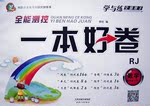题目内容
Our lives and our songs
Do you ever listen to the songs that your parents like? Chances are that you don’t. You probably think the music that they like is old and dull and that the songs on your playlist are much cooler.
But here is what scientists found recently : People’s music tastes change as they age, according to a study published in the Journal of Personality and Social Psychology. So it is likely that your own musical preferences will follow a similar path to your parents’, whether you like it or not.
We used to think that culture and personality are the only factors (因数) that affect one’s music choice. But researchers at the University of Cambridge, UK, gathered data from more than 250,000 people over the past 10 years. They noticed that as people age, their social circumstances (环境) change, and so does their music taste.
There are three musical periods that people pass through as they mature -- “intense(热情的)”, “contemporary” and “ sophisticated (深奥微妙的)”.
The first period comes in the teenage years , during which people like intense music such as punk and rock because teenagers tend to be aggressive and want to establish their identities as independent individuals.
But as people move into early adulthood, their lifestyle changes --they socialize (社交)more and want to build close relationships with others. As a result, they become more fond of contemporary music ,such as pop and R&B, which is usually uplifting and danceable and played at parties where people hang out together and chat.
When middle age comes, things have settled down for most people. This period will be dominated (支配)by more “sophisticated” music, such as jazz and classical, as well as more catchy music like country, folk and blues.
“ For many , this life stage is frequently exhausted (使精疲力尽)by work and family, and there is a requirement for relaxing , emotive (动情的)music,”Jason Rentfrow, a research member , told The Telegraph.
But you must be thinking : “Aren’t there old people who are still into rock music ?”
Of course there are. But Rentfrow explained that their reasons for listening to rock music may have changed. “ We use music for different reasons,” he said , and thus at that age people may listen to remind themselves of their youths.
68.According to researchers at the University of Cambridge, ______.
A.People’s music preferences have deep connections with their social lives
B.Children don’t like the songs that their parents like because they are too hard to understand .
C. Children are influenced by their parents in terms of the types of music they listen to .
D.People from different cultural backgrounds have different tastes in music
69.Which of the following statements about musical periods is TRUE according to the article.?
A. People in their teenage years prefer pop music to rock music.
B. People’s music tastes tend to settle down as they age.
C. Jazz and classical music help adults develop their identities.
D. Pop and blues ane dull and boring in the eyes of most middle-aged people.
70.What is the main purpose of the article ?
A. To explain why parents and children don’t share music preferences.
B. To show how music helps shape people’s social lives.
C. To present a new study about how people’s music tastes change.
D. To discuss research into the varied factors that determine people’s music tastes .
ABC

 全能测控一本好卷系列答案
全能测控一本好卷系列答案